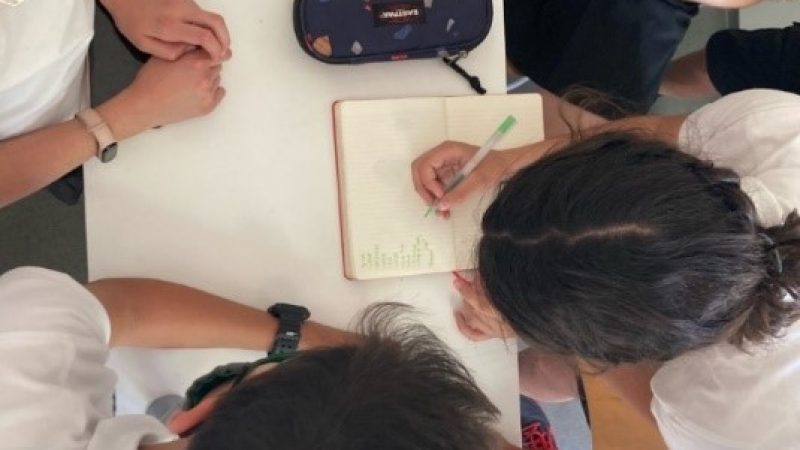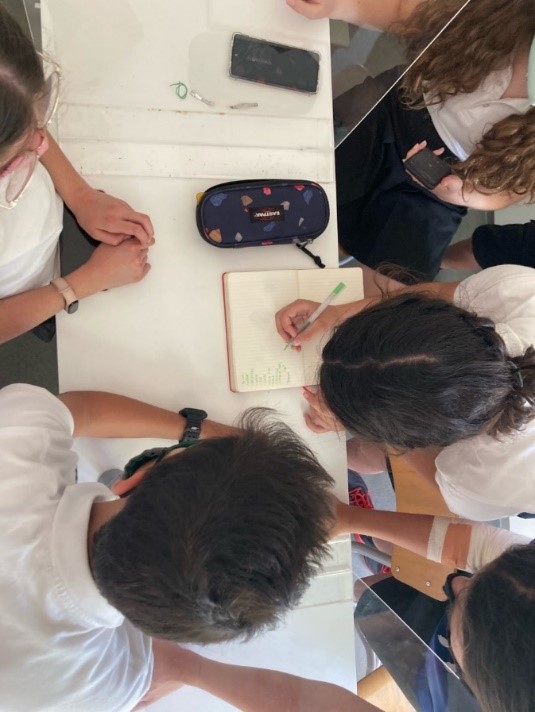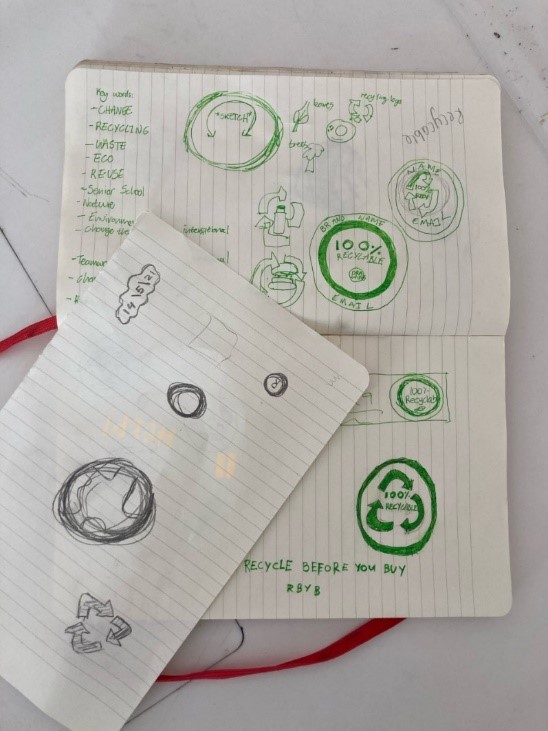The Junior & Senior School is located close to the capital of Cyprus and it is situated in a busy area surrounded by several businesses and organisations. The students involved in the Living Lab project are a group of 7 students from 12 and 13 years old that are incredibly eager and motivated. Their teacher was familiar in advance with the implementation of school projects but not with the Living Lab methodology or the concept of the food system. The teacher and students spent time studying ideas and concepts connected to the food system and identifying prospective collaborators in their local community.
The school was interested in searching, identifying and evaluating food packages used by food production companies in Cyprus. The school investigated the type of packages that are used by local producers and how to promote eco-friendly packaging to producers and consumers with the support of societal actors. Based on the organization who is in charge for the recycling here in Cyprus, approximately 40% of the materials that people put in recycling bins cannot be recycled. Their end goal is to create a service that will clearly indicate if a product is recyclable in Cyprus, before the customer purchases it. In this way, they will promote recyclable products/companies and at the same time this initiative will impact on improving the quality of recycling.
The students initially lacked some confidence since they felt they were too young to be listened or for adults and professionals to seriously take them into consideration. But as their project progressed, they felt that, with support, they can be agents of change in their community.
As one of the students stated: “From the Living Lab experience, we are gaining a plethora of skills, such us working as a team, designing, tech skills, etc. We have learnt that we must come together and collaborate as a team to make Cyprus green again. As the new generation, we feel responsible to bring back the good in the world, restore its natural beauties and create an everlasting impact”.

Students brainstorm ideas and design their logo 
The Research in Science and Technology Education Group (ReSciTEG) facilitated the communication between an organization responsible for packaging waste and the school. The organization provided expertise and feedback related to the project by meeting with the students, providing information material, suggesting other societal actors that they can collaborate with, and answering different questions of the students.
The school also made some steps in creating a prototype service for supermarkets (i.e. an awarding system for consumers) in order to raise consumer’s awareness about whether the products they buy are friendly to the environment and can be recycled. Specifically, they suggested to create badges that can be placed on shelves under products which the abovementioned organisation can recycle or that use eco-friendly packaging. When buying these products, the consumer can be awarded with points in the already established loyalty plan of the supermarket. This service intrigued the representative of the organisation who is planning to present it to the company’s board.
The students that formed this Living Lab were overly excited to participate and had an active role in the process. They were eager to form their group, plan the different actions and they were very excited to pitch their ideas to big companies. One of the main points raised by these students was that they were passionate to make this work and to convince adults that their project has great potential. During their meetings, they formulated different arguments and ways to convince a variety of societal actors and to also inform others, especially their peers.
CONTACT
Yvoni Pavlou
National coordinator – University of Cyprus
Mail
School website



